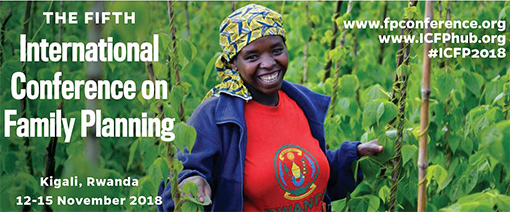
The 5th International Conference on Family Planning (ICFP) from 12-15 October 2018 will convene some 3700 high-level policy-makers, scientists, researchers, programme managers, civic leaders, youth and diverse organisations from over 120 countries around the world to share their best research and practices and to use their knowledge to expand access to family planning services.
This year’s conference theme is “Investing for a Lifetime of Returns” and will revolve around the substantial returns that investments in family planning and reproductive health reap at the individual, family, community, national and global levels. To this end, WHO and the HRP Special Programme will be organising some 50 pre-congress and conference sessions. There will be talks and side-events to present the latest in policy, guidelines and research to improve access to family planning and contraception by all, including the most marginalized or vulnerable populations. A notable highlight of the conference will be the launch of a new app for the “Medical Eligibility Criteria for Contraceptive Use in Humanitarian Settings”. WHO will be demonstrating the new app along with other electronic tolls and materials on family planning and sexual and reproductive health at the WHO cybercafé station.
WHO will also be hosting a pre-conference workshop on Strengthening family planning and contraceptive services using WHO contraception tools: key lessons and products / Renforcer la planification familiale et les services contraceptifs à l'aide des outils sur la contraception de l'OMS : Leçons clés et produits, from 830AM to 3:00 PM on Monday 12 November at AD10 of the Kigali Conference Center. Three sessions on the development of new WHO tools, its use in countries, and the research work on postpartum family planning will be presented.
During the congress, the latest research evidence on contraception and family planning methods from HRP will be presented on diverse topics such as the needs of adolescents, the expansion of health worker roles postpartum contraception in low-income countries, the role of sexuality education and WHO’s approach to user-initiated interventions. Whilst most presentations will be in English, a number of the presentations will be made in French or will have French translations.
Providing technical support to family planning programs is a key mandate of WHO’s Department of Reproductive Health and Research. This year, WHO will also be closely working with a parallel track for the Implementing Best Practices Initiative (IBP) track that works on fostering change and scaling up best practices
